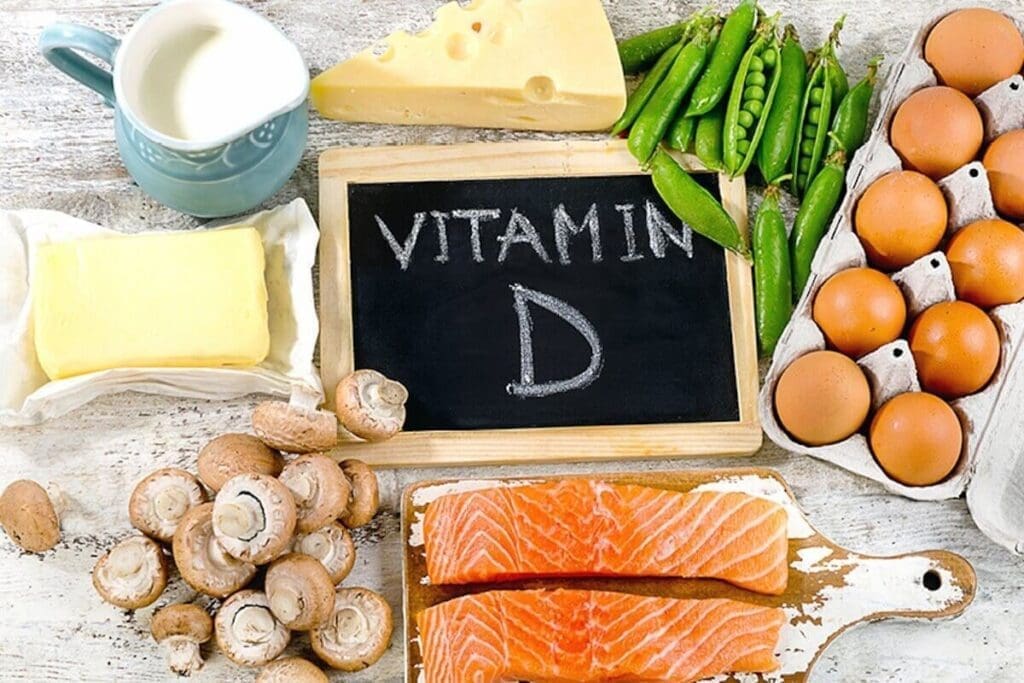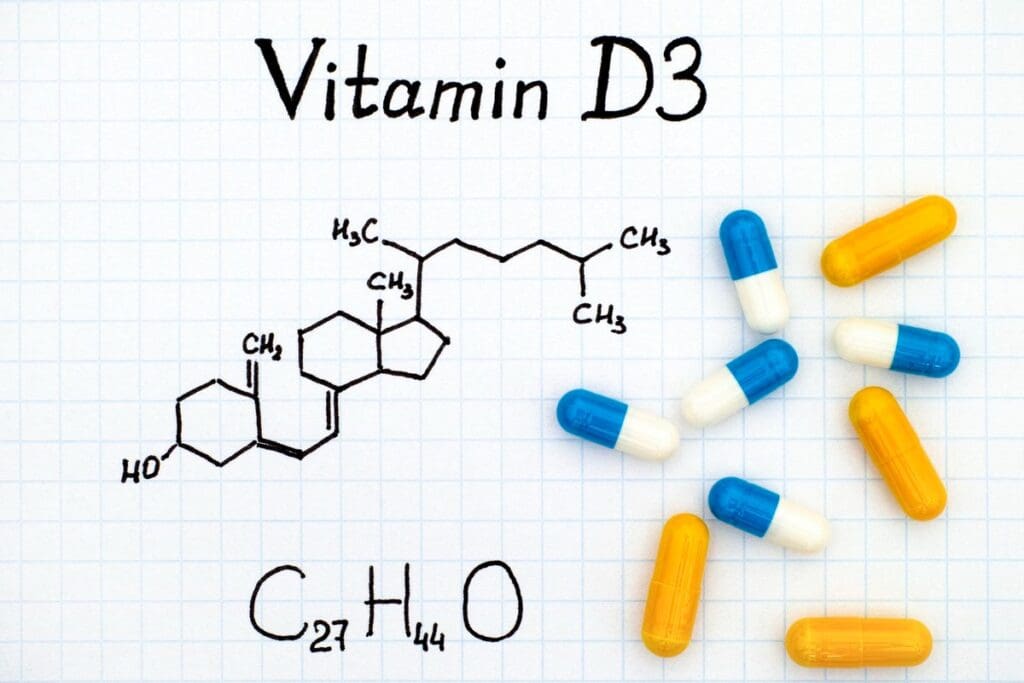Last Updated on November 25, 2025 by
Recent studies have looked into how vitamin D affects Prostate-Specific Antigen (PSA) levels. This has raised hopes about its role in prostate health.

The latest research shows mixed results regarding the vitamin D effect on PSA levels. It’s unclear if vitamin D can actually lower PSA levels, highlighting the complex bond between vitamin D and PSA levels.
PSA is key for men worried about prostate health. Prostate-specific antigen (PSA) is a protein from the prostate gland. Its blood levels tell us a lot about prostate health.
PSA is a marker for prostate health. High levels might mean prostate issues, like prostate cancer. But, high PSA doesn’t always mean cancer. It can also show up in prostatitis or BPH.
PSA plays a big role in finding prostate cancer early. This is key for good treatment. We use PSA testing to:
PSA testing isn’t a direct test for cancer. It’s a tool that helps when used with other tests like DRE and biopsies. It helps figure out the risk of prostate cancer.

Doctors suggest PSA testing based on risk factors. These include age, family history of prostate cancer, and ethnicity. Men usually talk about PSA testing with their doctor at 50. But, those at higher risk might start earlier.
Choosing to get a PSA test is a big decision. It’s about weighing the benefits against the risks, like overdiagnosis and overtreatment. It’s important for men to talk to their doctor to decide what’s best for them.
Several things affect whether a doctor suggests PSA testing:
To understand how vitamin D affects PSA levels, we must look at its interaction with prostate tissue. Studies show vitamin D’s big role in prostate health, possibly changing PSA levels.
Vitamin D receptors are found in prostate cells. This means vitamin D helps control prostate cell growth and change. Research shows vitamin D might fight prostate cancer by:
Many big studies have looked at vitamin D and PSA levels. Some important discoveries are:
These studies show the complex relationship between vitamin D and PSA levels. They point to the need for more research to understand this connection.
Recent studies have shed light on the complex relationship between vitamin D and PSA levels. We explore the latest research findings to understand how vitamin D affects prostate health.
Studies have looked into if vitamin D can lower PSA levels. But, the evidence shows no consistent PSA-lowering effect across different studies.
A review of many trials found vitamin D supplementation doesn’t significantly lower PSA levels in men. This means vitamin D might not directly affect PSA measurements.
With no consistent effect of vitamin D on PSA levels, it’s clear PSA thresholds don’t need adjustment based on vitamin D levels. This is good news for both clinicians and patients, as it makes interpreting PSA test results simpler.
PSA thresholds help determine prostate cancer risk and guide further testing or treatment. Vitamin D levels not affecting these thresholds means healthcare providers can stick to established guidelines without worrying about vitamin D status.
The link between vitamin D and PSA has been studied in various ways, with mixed results. Some studies suggest a link between higher vitamin D levels and lower PSA, while others found no correlation.
To illustrate this, let’s look at some key findings:
These mixed results show the complex relationship between vitamin D and prostate health. More research is needed to understand vitamin D’s benefits and limitations.
When thinking about vitamin D supplements, it’s important to talk to your healthcare provider about safe vitamin D dosage to avoid risks.
Research shows that vitamin D and PSA levels have a U-shaped relationship. This means low and high vitamin D levels can be bad for PSA. But, moderate levels might be just right.
Keeping vitamin D levels in a certain range is key for prostate health. We’ll look at how moderate levels can help and the dangers of too little or too much.
Studies say vitamin D levels between 20-134 ng/mL might keep PSA levels healthy. Research from the National Institutes shows moderate vitamin D is good for health, including the prostate.
It’s important to keep vitamin D levels right because it helps control cell growth. Vitamin D receptors are in prostate cells, showing it directly affects prostate tissue.
Vitamin D deficiency and excess both have health risks. Deficiency can lead to diseases like osteoporosis and some cancers. Excess can cause toxicity, with symptoms like nausea and weakness.
For PSA levels, very low and very high vitamin D levels are linked to high PSA readings. This U-shaped relationship shows finding the right vitamin D range is vital for prostate health.
To get the right vitamin D dosage for PSA, talk to a healthcare professional. They can figure out the best level for you, considering your age, BMI, and genetics.
The link between vitamin D deficiency and prostate cancer is a key area of study. Research shows men with very low vitamin D levels face a higher risk of aggressive prostate cancer. We’ll look into how vitamin D deficiency affects prostate cancer severity and explore the biological reasons behind this.
Studies have found a strong link between vitamin D deficiency and aggressive prostate cancer. Men with very low vitamin D levels are more likely to have high-grade prostate cancer. This type of cancer is more aggressive and can be life-threatening.
The exact reasons are not fully known. But research suggests vitamin D is important for controlling prostate cell growth and differentiation.
Clinical studies have looked into vitamin D levels and prostate cancer outcomes. They found men with vitamin D deficiency often have more aggressive cancer. This includes higher Gleason scores and more advanced tumor stages.
Vitamin D affects many biological pathways that impact prostate cancer. It plays a key role in regulating cell growth and preventing uncontrolled cell division. This is a key feature of cancer.
Vitamin D also has anti-inflammatory properties. This can help reduce inflammation that contributes to cancer. It influences genes involved in cancer progression, which can slow or stop cancer cell growth.
Understanding how vitamin D deficiency leads to aggressive prostate cancer is important. It helps in developing targeted treatments. More research is needed to fully understand the complex relationship between vitamin D and prostate cancer biology.
Many wonder if taking vitamin D supplements can change PSA levels. We look into how much vitamin D is needed and its effect on Prostate-Specific Antigen (PSA) levels.
Research shows that taking 4000 IU of vitamin D daily doesn’t really change PSA levels. Studies have consistently demonstrated that this amount is safe and doesn’t cause big changes in PSA.
Vitamin D and prostate tissue have a complex relationship. Even though vitamin D receptors are in prostate cells, the supplement amount might not change PSA levels much. Further research is needed to understand this better.
Even if vitamin D supplements don’t change PSA levels much, they might have other benefits. For people with vitamin D deficiency, supplements can improve bone health and lower disease risk. It’s essential to consult with a healthcare professional to find the best option for you.
In summary, vitamin D supplements at standard doses don’t greatly affect PSA levels. Yet, they might offer other health benefits. We suggest talking to a healthcare provider about supplements to make the right choice.

Everyone reacts differently to vitamin D supplements. It’s important to know why this happens. Several factors, including vitamin D’s effect on PSA levels, play a role.
Genetics can change how we process vitamin D. Some genes affect the enzymes that break down vitamin D. This can impact how well vitamin D works on PSA levels. Knowing these genetic differences helps predict how vitamin D will affect PSA levels.
For example, changes in the VDR gene can make our bodies more or less responsive to vitamin D. Research links certain VDR variations to prostate cancer risk and PSA levels.
Body Mass Index (BMI) also matters for vitamin D supplements. People with a higher BMI often have less vitamin D. This is because vitamin D gets stored in fat. This makes vitamin D supplements less effective for PSA levels.
Studies suggest adjusting vitamin D doses based on BMI can help. Customizing supplements for BMI could be more effective.
Age also affects vitamin D processing. As we get older, our skin makes less vitamin D from sunlight. Our kidneys also lose efficiency in converting vitamin D. This decline can reduce the effectiveness of vitamin D supplements.
Older people often need more vitamin D to support PSA levels and prostate health. It’s important to consider age when supplementing with vitamin D.
In summary, how we respond to vitamin D supplements varies due to genetics, BMI, and age. Understanding these factors helps doctors give better advice. This can make vitamin D supplements more effective for PSA levels and prostate health.
Men worried about PSA levels and vitamin D should know the link between them is complex. Research shows vitamin D is key for health, but its effect on PSA isn’t clear-cut.
Studies suggest keeping vitamin D levels between 20-134 ng/mL is best for the prostate. Too little or too much vitamin D can harm, showing the need for balance.
Men wanting to use vitamin D to manage PSA should talk to doctors. They can give advice tailored to each person’s health, including genetics, BMI, and age.
While 4000 IU/day vitamin D might not change PSA much, fixing a deficiency is good for health. It could also lower the risk of aggressive prostate cancer.
In summary, men should aim for the right vitamin D levels for prostate health. Regular health checks and talks with doctors are key. They help figure out the best plan for each person, considering vitamin D’s impact on PSA and overall health.
Research shows vitamin D doesn’t always lower PSA levels. Studies have mixed results. The link between vitamin D and PSA is complex.
Vitamin D affects prostate tissue in different ways. This could impact prostate health. Research offers insights into vitamin D’s effect on PSA levels.
Vitamin D levels between 20-134 ng/mL might be best for healthy PSA levels. Too little or too much vitamin D can be risky.
Yes, low vitamin D levels increase aggressive prostate cancer risk. Scientists are exploring why this happens.
Taking 4000 IU/day of vitamin D doesn’t change PSA levels much. But, it might offer other benefits. People react differently to it.
Genetics, weight, and age affect how vitamin D works in the body. Knowing this helps tailor vitamin D advice.
Current studies say no, PSA levels don’t need to change based on vitamin D. The relationship between vitamin D and PSA is complex and needs more study.
There’s no set dose for lowering PSA, but 4000 IU/day is safe for most. Always talk to a doctor about your needs.
Subscribe to our e-newsletter to stay informed about the latest innovations in the world of health and exclusive offers!